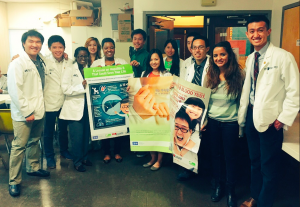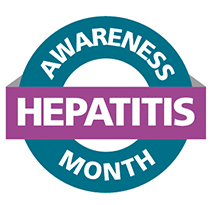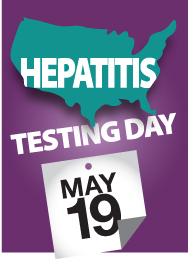
May is Hepatitis Awareness month. Why do we need an annual reminder about hepatitis B? Because 65 percent of the estimated 2.2 million people in the U.S. living with hepatitis B don’t know they’re infected.
Studies show when people know their hepatitis B status, they’re more likely to get monitored regularly, get treatment, and take steps to avoid passing on the disease to partners and their children.
So why are so many Americans unaware of their hepatitis B infection? Here are five roadblocks that stop us from getting tested for hepatitis B, and what how we can do to overcome them.
We feel fine, so we assume we’re not infected. Hepatitis B rarely causes symptoms. There are very few sensory nerves around the liver, so when a viral hepatitis infection strikes, we rarely feel its effects. As a result, most of us – especially if we were infected as children or newborns – never experience any symptoms for decades. So remember, “feeling OK” is no excuse to avoid testing.
We’re afraid and would rather not know if we have hepatitis B. In this case, ignorance can lead to liver damage, cancer, and the spread of this potentially-fatal infection. When a hepatitis B infection is identified and monitored, our chances of leading a long and healthy life increase markedly. Getting tested is scary, but getting liver cancer is deadly.
We think we’re not at risk: We humans have an amazing capacity to “forget” or ignore things we’ve done that were stupid, embarrassing and put us at risk, or that might lead to painful discoveries and disclosures. If we ever had unprotected sex with someone whose hepatitis B status is unknown to us, we are at risk. If we or our parents come from a region, such as Asia and Africa, that has high rates of hepatitis B (see the map) we’re at risk. If we’re a gay male, we’re at risk. Wishful thinking will not protect us from liver disease.
We lie to our doctors: Studies show we consistently lie to our doctors about how much we drink, what drugs we use, how much we exercise, and whether we are sexually active. We’re afraid of being judged, but lying to our doctor is hazardous to our health. If we say we’re monogamous or don’t tell them about drug use, our doctors will be less likely to screen us for certain sexually transmitted infections, including hepatitis B. So tell the truth and get tested.
Our doctors don’t screen us, even when we’re at risk because of our ethnicity: Medical guidelines make clear that immigrants (and their children) from countries with high rates of hepatitis B should be screened for hepatitis B, but studies show many doctors aren’t doing this. A doctor’s office may be one of the few places where it’s OK to racially profile patients, because some ethnicities are clearly at higher risk of hepatitis B than others. One in 12 Asian-Americans has hepatitis B, and two in three don’t know it. Immigrants from Africa and the Middle East have similar high infection rates. All should be screened.
 This month, get tested for hepatitis B. Go to your doctor’s office, or get tested at a local community health center, Hep B United screening event, STI clinic, needle exchange program, or at a Planned Parenthood clinic. For a partial list of screening events held across the country, click here.
This month, get tested for hepatitis B. Go to your doctor’s office, or get tested at a local community health center, Hep B United screening event, STI clinic, needle exchange program, or at a Planned Parenthood clinic. For a partial list of screening events held across the country, click here.
 Still not sure if you should get tested? Take this five-minute risk assessment test designed by CDC. Meanwhile, here is who should get screened for hepatitis B, according to CDC guidelines:
Still not sure if you should get tested? Take this five-minute risk assessment test designed by CDC. Meanwhile, here is who should get screened for hepatitis B, according to CDC guidelines:
- People born in Asia, Africa, and other regions with moderate or high rates of hepatitis B
- Unvaccinated people whose parents are from regions with high rates of hepatitis B
- Anyone who has had or is having sex with a person infected with hepatitis B
- People who live with someone with hepatitis B
- Men who have sexual encounters with other men
- People who inject drugs
- All pregnant women
- People with HIV infection
- People on hemodialysis
- People who receive chemotherapy or other types of immunosuppressive therapy

